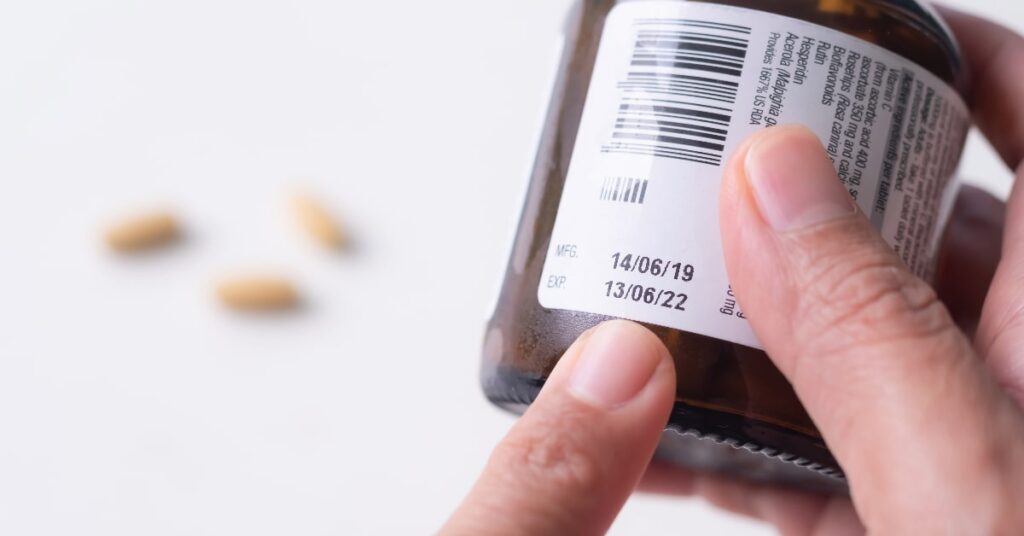Understanding Amazon’s Expiration Date Policy for Sellers
If you sell on Amazon, it’s important to know their rules and guidelines so that your products follow them and you don’t have problems. One policy that often causes confusion among sellers is Amazon’s expiration date policy.
This article’ll dive into what this policy entails, why it’s essential, and how you can ensure your products comply with Amazon’s FBA expiration date policy.
What is Amazon’s Expiration Date Policy?
Amazon requires that products with an expiration date must be good for at least 90 days from the day they are given to the customer. This applies to all products sold on Amazon, including food, supplements, and other perishable items.
The shelf life is when a product can be stored before it is no longer safe or practical. This Amazon policy is in place to protect customers from receiving expired or potentially harmful products.
Why is This Policy Important?
The expiration date policy is crucial for maintaining the trust and safety of Amazon customers. Amazon makes sure that all products can be kept for at least 90 days. This way, Amazon can guarantee that customers get fresh and safe products.
This policy also helps prevent potential legal issues for Amazon and its sellers. If a customer receives a product with a short shelf life and becomes ill or has a negative reaction, it could result in a lawsuit against both the seller and Amazon.
Complying with this policy can also improve your seller metrics and ratings. Customers are more likely to leave positive reviews and return to purchase from a seller who provides fresh and safe products.
What Products are Affected by This Policy?
The expiration date policy applies to all products with an expiration date, including food, supplements, and other perishable items. This includes products that are sold in both new and used condition.
Some products may have a “best by” or “use by” date instead of an expiration date. These dates are not considered expiration dates and are not subject to this policy. However, it’s important to note that these dates should still be within the 90-day shelf life requirement.
Mastering Amazon’s Expiration Date Policy in Simple Steps
To ensure the safety and satisfaction of customers, it is crucial to handle and label consumable and topical items properly. Here are some guidelines to follow:
- Identify Your Products: Examine your inventory and identify all consumable and topical items. When in doubt, it’s better to label a product with an expiration date to be on the safe side.
- Check Shelf Life: Make sure the products in your stock have a remaining shelf life of at least 90 days. Amazon disposes of expired items within 50 days to prevent customers from being supplied with expired items.
- Label Properly: Label all qualifying items with their expiration date, following Amazon’s guidelines. The format should be either MM-DD-YYYY or MM-YYYY, in at least 36-size font or more prominent. For bundled products, label each item and the bundle as well.
- Package Effectively: Products with expiration dates should be adequately sealed in appropriate packaging for shipping. Place the expiration date labels on the outside of the packaging to make them easily visible to Amazon’s workers.
Tips to Ensure Your Products Are in Compliance
To ensure your products comply with Amazon’s expiration date policy, you can take a few steps.
Check the Expiration Date Before Listing
Before listing a product on Amazon, checking the expiration date to ensure it meets the 90-day shelf life requirement is essential. This can usually be found on the product packaging or label.
If the product has no visible expiration date, it’s best to contact the manufacturer for clarification. It’s always better to be safe than sorry regarding compliance with Amazon policies.
Monitor Your Inventory
It’s essential to regularly monitor your inventory to ensure that products with expiration dates are not sitting in your warehouse for an extended period. This can be done manually or through inventory management software.
If you see that a product is about to expire, it’s better to take it out of your stock and dispose of it correctly. This will prevent any potential issues with customers receiving expired products.
Use Fulfillment by Amazon (FBA)
Using Fulfillment by Amazon (FBA) can help ensure your products comply with the expiration date policy. FBA warehouses are temperature-controlled, which can help extend the shelf life of your products.
Additionally, FBA has strict policies for handling and disposing of expired products. This can help you avoid problems with customers getting expired products and save you time and resources in handling your inventory.
What Happens if You Violate the Expiration Date Policy?
If you violate Amazon’s expiration date policy, there can be severe consequences for your seller account. These can include:
- Removal of the product listing
- Suspension of your seller account
- Negative impact on your seller metrics and ratings
- Legal action from customers
It’s essential to take this policy seriously and ensure that all your products comply to avoid potential issues.
Conclusion
It’s really important to know Amazon’s expiration date policy so you can keep customers happy and protect your seller account. By regularly monitoring your inventory and using FBA, you can ensure that your products comply and provide customers with fresh and safe products.
Always check the expiration date before listing a product and dispose of any expired products properly. You can maintain a successful and compliant Amazon business by following these guidelines.


